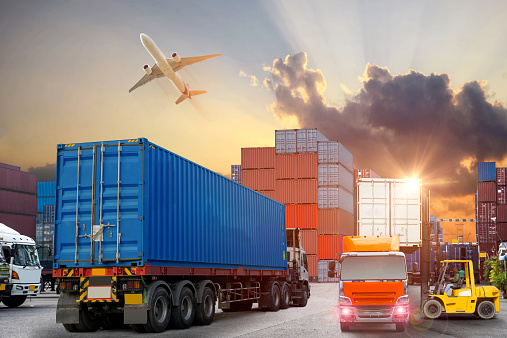In the ever-evolving landscape of global trade and commerce, logistics solutions have become the backbone of modern economies. They play a critical role in ensuring that goods reach their destinations efficiently, cost-effectively, and on time. However, as the world continues to change at an unprecedented pace, the challenges facing the logistics industry have also evolved. To keep pace with the demands of the modern world, innovative solutions are needed to address these challenges.

Supply Chain Visibility
One of the foremost challenges facing the logistics industry today is the need for enhanced supply chain visibility. In an era where consumers expect real-time tracking of their orders, businesses are under immense pressure to provide visibility at every stage of the supply chain. The solution lies in the integration of advanced technologies such as Internet of Things IoT sensors, blockchain, and artificial intelligence AI. These technologies enable the tracking of goods from their point of origin to their final destination, providing real-time updates and allowing businesses to make informed decisions.
Sustainability and Environmental Concerns
With the increasing focus on sustainability and environmental concerns, logistics companies are challenged to reduce their carbon footprint. This includes optimizing transportation routes, adopting cleaner energy sources, and minimizing waste. Electric and autonomous vehicles, powered by renewable energy, are emerging as promising solutions for sustainable transportation. Additionally, the concept of circular logistics, which emphasizes recycling and reusing packaging materials, is gaining traction as an eco-friendly approach.
E-Commerce Boom
The e-commerce boom has transformed consumer expectations, demanding faster and more convenient delivery options. To meet this challenge, logistics companies are increasingly turning to automation and robotics. Automated warehouses with autonomous robots can significantly reduce order processing times, ensuring swift deliveries even during peak demand periods. Drones and autonomous vehicles are also being explored as last-mile delivery options in densely populated areas.
Globalization and Trade Complexity
Globalization has led to increased trade complexity, with goods crossing international borders regularly. This complexity is further compounded by changing trade policies and regulations. To address these challenges, logistics providers are turning to trade management software that can streamline customs compliance and trade documentation. Additionally, the use of predictive analytics can help businesses anticipate changes in trade regulations and adjust their supply chains accordingly.
Workforce Shortages and Skill Gaps
The logistics industry faces workforce shortages and skill gaps, particularly in areas such as data analytics and cybersecurity. To address this challenge, businesses are investing in training and development programs to up skill their employees. Additionally, they are leveraging automation and AI to augment the capabilities of their workforce. These technologies can handle routine tasks, allowing employees to focus on more complex and value-added activities.
Resilience and Disaster Preparedness
The modern world is vulnerable to a wide range of disruptions, from natural disasters to geopolitical conflicts. To ensure business continuity, logistics companies are investing in supply chain resilience and disaster preparedness. This involves diversifying sourcing options, creating redundancy in transportation networks, and developing comprehensive risk management strategies. The future of freight on board logistics is undeniably intertwined with technological advancements and a commitment to sustainability, resilience, and adaptability.
